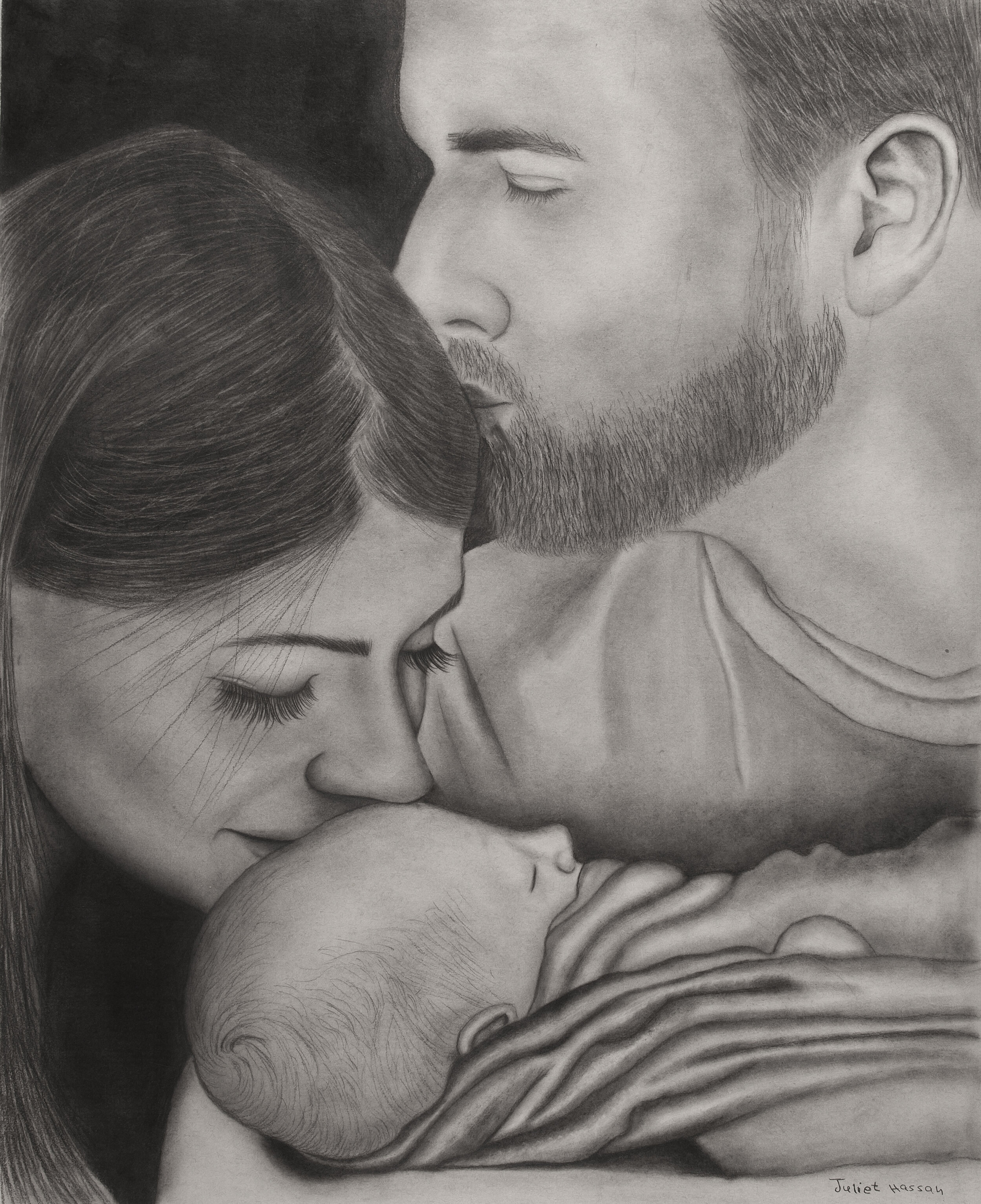Juliet Hassan (b.1997)
Juliet has been living in an Iraqi IDP camp since 2015. After the initial ISIS attack on her home region of Sinjar in August 2014, she and her family fled to the Syrian border and then to Duhok, and her father and youngest sister were subsequently taken in as refugees in Germany. Juliet was not permitted to join them as she was over 18 years of age.
Juliet remembers a pleasant and simple life in Sinjar before the genocide, attending school and going on picnics with friends and family. Even on the eve of 03 August she did not believe the rumours that ISIS would attack. “That night we heard and saw the bombs,” says Juliet, “and in the early morning we prepared ourselves with two cars to go to Mount Sinjar.” Among large crowds of Yazidis fleeing their villages and ascending the mountain, the cars broke down and Juliet and her family had to continue on foot, leaving food and water supplies behind. “My father was very sick,” she explains, “so we had to stay somewhere close by, not at the top of the mountain. We stayed in the same place for a week and received water and simple food from local farmers.”
Juliet has always wanted to become a translator and to be good at languages. Since living in the camp, she has worked with NGOs and produced some paintings to help people understand Yazidi history and culture: “Art is something very important in my life,” she says. Juliet has quickly developed her skills at drawing with charcoal by following the example of other artists. Her tender and warm-hearted drawing Peace depicts a young couple with a baby, foregrounding the theme of family. Juliet maintains that while ISIS tries to destroy the basic social element of the family, they will always be unsuccessful “because family members will stay together in peace whatever they try.”
Yazidi girl in traditional clothes depicts one of Juliet’s friends wearing a Yazidi headdress, the komek u rashek. Promoting awareness and preservation of such customs is a crucial part of protecting Yazidi cultural heritage, one of Juliet’s principal aims in her work. She hopes to remind people in her community of their traditions, and when she searched to no avail for adequate pictures of this typical attire, her friend provided a photograph of herself dressed for a special occasion. Juliet is fighting for her Yazidi community to be treated equally, and for her people to live in peace within Iraq, just as it is possible in other countries.
“I want the UN and international community to support those families who suffered a lot,” she explains, “and to encourage talented people to achieve their goals.” Above all she hopes for a society in which people of all backgrounds can live in peace, without racism and persecution. “I want the UN and international community to support those families who suffered a lot, and to encourage talented people to achieve their goals. ” – Juliet Hassan
Yazidi Girl in Traditional Clothes, (2019)
Charcoal on paper
Peace (2019)
Charcoal on paper


